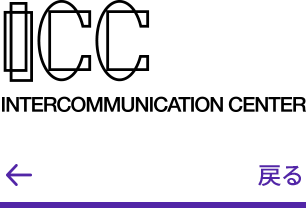Today it is common to see natural or artificial trees forming
part of artificial nature set up in a section called "refresh
corner" or by some other name in offices and large buildings.
So it may not be surprising that artificial nature is created by
computer graphics and is shown on monitors. The trees swaying in
the wind on the 50 monitors may have the healing effect on the human
mind. All the same, this forest is no place for taking a therapeutic
walk.
The installation presented by Patricia Piccinini is a kind of parallel
world. It is the world of fiction in which nature created by computer
graphics is taken for granted. Or it may be regarded as an installation
of virtual nature. There is nothing wrong with this view. Even so,
the work has a contrivance for drawing into itself viewers who are
outside the ecosystem.
You will get some hints on this point from the digital print, which
is one element of the work (see pp.6-7). The sample box (or something
like that) shown there contains leaves of various trees. Piccinini,
who has great interest in biotechnology, presented mutants in her
previous digital photo works to create a distorted story or deformed
fiction(see p.10). The same kind of story is hidden in her work
displayed here, but you are invited to create your own story.
The bird, which is the only inhabitant in the virtual forest, would
fly away if you approach it. You can not only interact with the
forest that way but also explore it by using your own imagination.
The forest as a work of art has a strong message that distinguishes
it from simple simulation-like works.
Minoru Hatanaka (Assistant Curator, NTT InterCommunication
Center)
|
